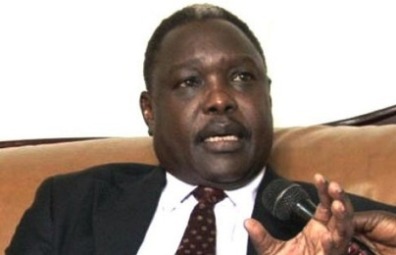South Sudan decries African union insistence on targeted sanctions
January 30, 2018 (JUBA) – South Sudan’s government has decried insistence of the African Union to impose sanctions against individuals perceived to be an obstacle to the peace process in the country.

“They [IGAD] insisted that sanctions against individuals must go ahead and those who obstruct and violate peace will be sanctioned,” said Martin Elia Lomuro.
Lomuro remarks were aired on South Sudan’s state television on Wednesday.
The minister of cabinet affairs was one of the senior government officials who accompanied President Salva Kiir to African Union and IGAD meetings on the upcoming peace revitalization process in Addis Ababa.
The regional and continental leaders, according to the minister, insisted that sanctions will be imposed on peace spoilers.
The IGAD council of ministers during the meeting agreed, through the AU Peace and Security Council, to request the UN Security Council to consider the imposition of sanctions on those who undermine the implementation of the peace deal.
“This is the thing we wanted to make sure Africa finds African solutions to its own problems, so sanctions would be handled by our own organizations,” he said.
Lomuro urged the IGAD ceasefire monitoring body, also known as CTSAMM, to investigate into ceasefire violations properly. He reiterated his government’s commitment to the peace process in the country.
In a speech delivered before the IGAD Council of Ministers on Saturday 27 January in Addis Ababa, President Festus Mogae, head of peace implementation mechanism called on the IGAD council of ministers to sanction the violators of the cessation of hostilities agreement pointing that the humanitarian situation has seen little improvement.
He said that several violations had been reported in Central Equatoria, Unity, Jonglei and Upper Nile States, causing further displacement of civilians. He further pointed that the ceasefire body CTSAMM blamed the SPLA-IO (Machar) and SPLA-IG respectively” for the violence in Koch and Mundri while investigations into other clashes still going on.
(ST)
